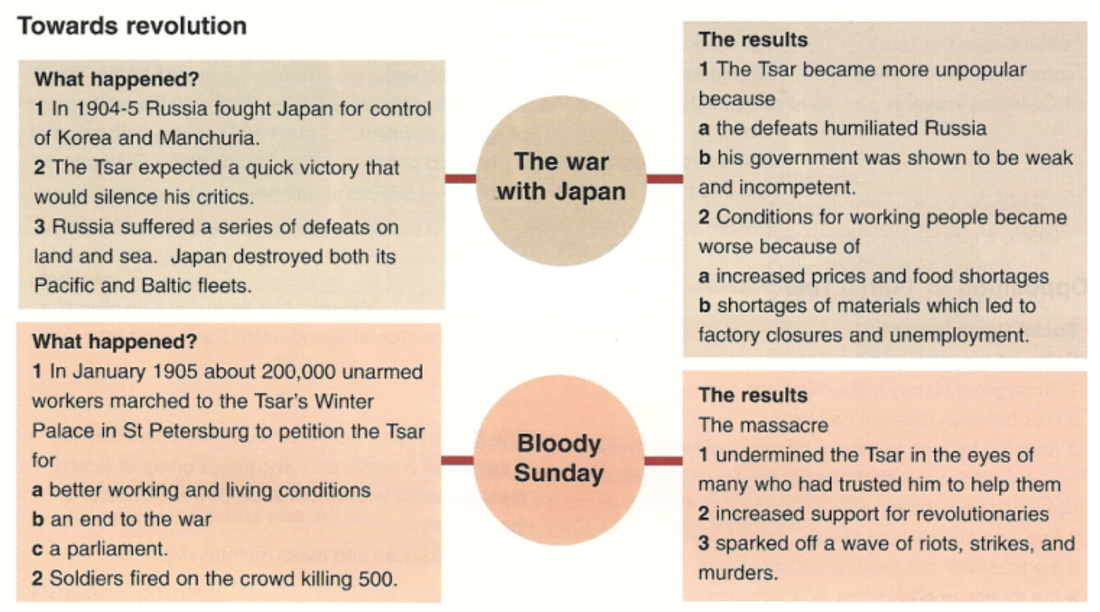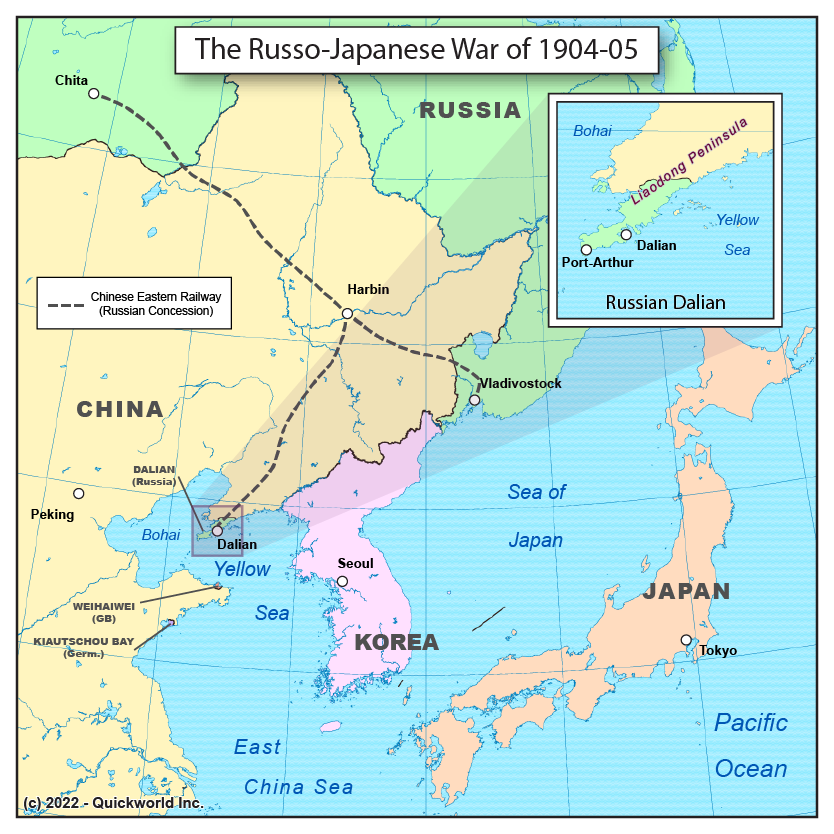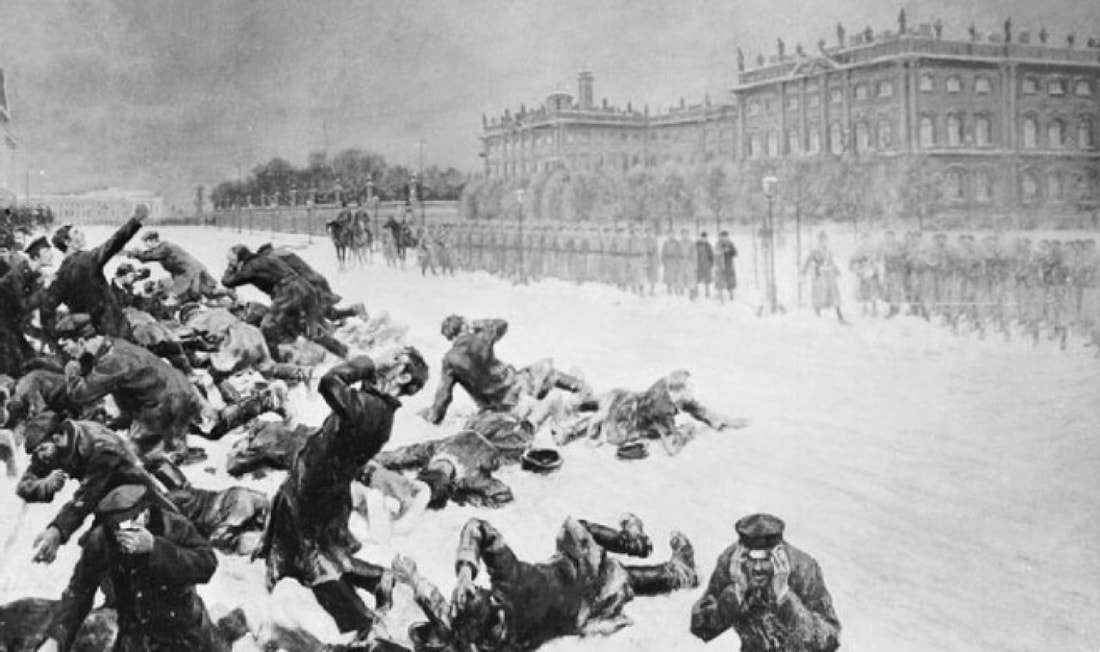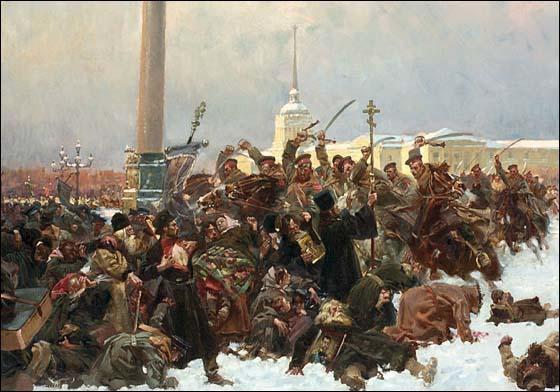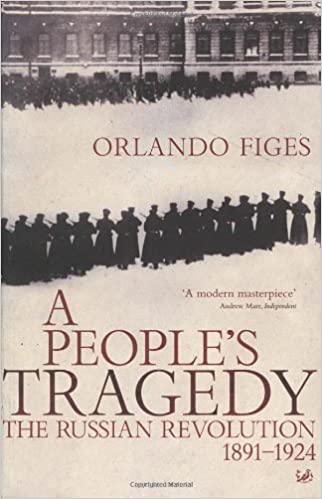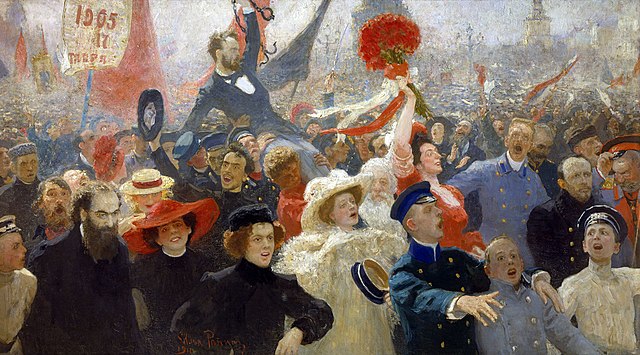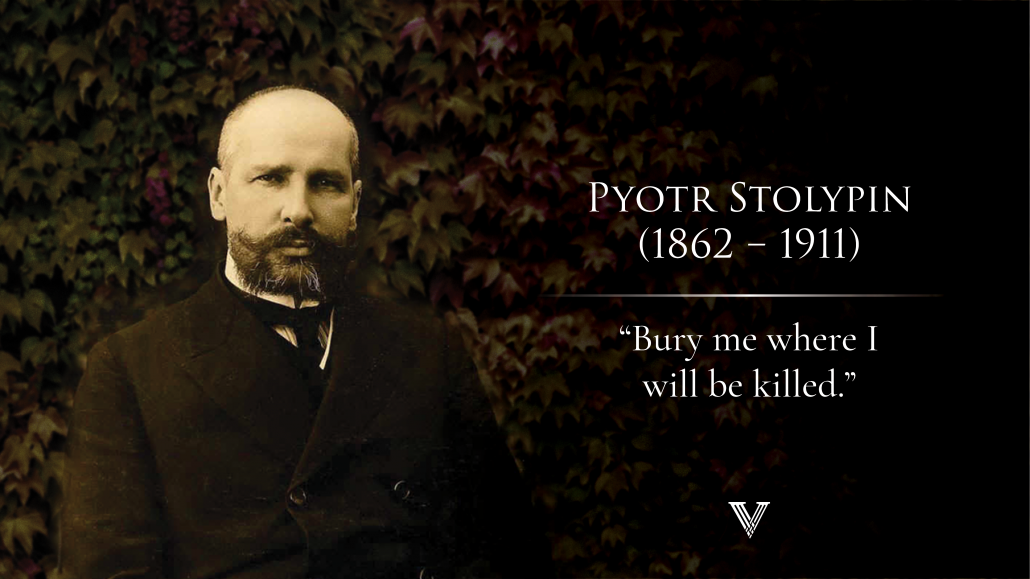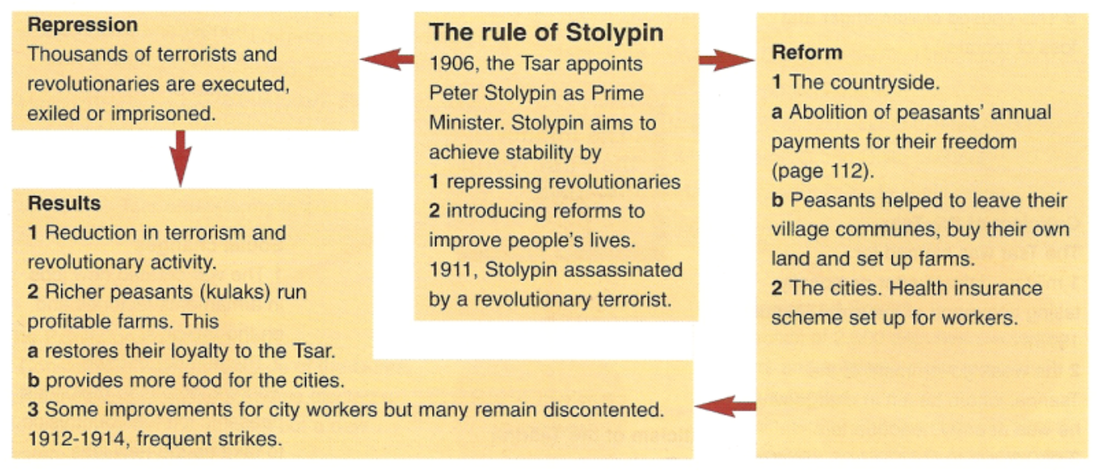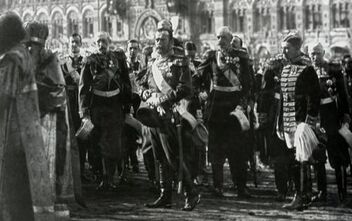Lesson 2 - How did the Tsar survive the 1905 Revolution?
The government’s attempts to deal with its problems failed dramatically. In 1903 it slightly relaxed censorship and other repressive measures. The result was an explosion of antigovernment pamphlets, books and newspapers. It also tried to set up government-approved trade unions (free trade unions were illegal), but this simply led to strikes and demands for free unions. In 1904, hoping to unite the country behind him with spectacular victories, the Tsar embarked on a war against Japan. In fact, Russia suffered a series of humiliating defeats.
Bloody Sunday
These tensions all came together on Sunday, 22 January 1905, when a crowd of 200,000 protesters, led by the priest Father Gapon, came to the Winter Palace to give a petition to the Tsar. Many of the marchers carried pictures of the Tsar to show their respect for him.
The Tsar was not in the Winter Palace. He had left St Petersburg when the first signs of trouble appeared. The protesters were met by a regiment of soldiers and mounted Cossacks. Without warning, the soldiers opened fire and the Cossacks charged. It was a decisive day. The Tsar finally lost the respect of Father Gapon and the ordinary people of Russia.
These tensions all came together on Sunday, 22 January 1905, when a crowd of 200,000 protesters, led by the priest Father Gapon, came to the Winter Palace to give a petition to the Tsar. Many of the marchers carried pictures of the Tsar to show their respect for him.
The Tsar was not in the Winter Palace. He had left St Petersburg when the first signs of trouble appeared. The protesters were met by a regiment of soldiers and mounted Cossacks. Without warning, the soldiers opened fire and the Cossacks charged. It was a decisive day. The Tsar finally lost the respect of Father Gapon and the ordinary people of Russia.
|
If you've watched my films on 'what is history?', you'll know that I like to say all history is 'text'. What I mean is that all history is the work of historians working with the traces that the past has left behind, attempting to reconstruct through writing the way things were. (See extension and extras for more)
Good history is not simply accurate and factual. No historian gets praised for getting their facts right. Good historians use their creative abilities, their imagination to attempt to bring the past alive. One of my favourite historians Orlando Figes is particularly good at this. Read (or watch/listen below) to his account of the Bloody Sunday massacre and you'll get a sense of what I mean. |
|
|
|
Orlando Figes on the 1905 Revolution - Extract
|
Activity 1
Read through the Orlando Figes's account of the 1905 revolution above.
What evidence is there that it is history? Choose some extracts which seem to you typically historical.
What evidence is there that it is literature? Choose some extracts which seem to you typical of literature.
What ultimately is the difference between literature and history?
Read through the Orlando Figes's account of the 1905 revolution above.
What evidence is there that it is history? Choose some extracts which seem to you typically historical.
What evidence is there that it is literature? Choose some extracts which seem to you typical of literature.
What ultimately is the difference between literature and history?
So how did the Tsar survive the 1905 Revolution?
The events of 1905
The events of 1905
- January Strikes in St Petersburg. Many Government officials killed.
- February Assassination of Governor-General of Moscow, the Tsar’s uncle.
- March Start of peasant uprisings. Landlords murdered. Many non-Russian areas start to demand independence.
|
|
|
|
The October Manifesto - The Tsar promised
|
Why did the Revolution fail?
Short-term
- The end of the war with Japan released troops to help the Tsar deal with the disturbances. Despite some mutinies the armed forces stayed loyal to the Tsar.
- The October Manifesto offered concessions which divided the opposition. It pleased (a) many workers who ended their strikes (b) the Liberal’s who ended their support for the Soviets.
- The radical workers’ strikes and peasants’ uprisings were not coordinated.
Long-term 1 - The Tsar weakened the Duma
The voting system for the Duma was rigged to give landowners and property owners more influence than peasants and workers. Despite this the first two Dumas were left-wing. The Fundamental Laws (May 1906) announced that (a) the Tsar remained an autocratic ruler (b) the Duma had no say in most areas of government (c) it had limited power to introduce new laws. When the first two Dumas (1906 and 1907) demanded reforms, the Tsar dismissed them. Further changes to the electoral laws excluded Socialists. The next two Dumas were loyal to the Tsar.
Long-term 2 - The actions of Prime Minister Stolypin
Activity 2
|
|
Short and long-term causes and consequences
When trying to explain the causes and consequences of revolution, it is important to distinguish between immediate short-term causes and (often more important) long-term causes. Short-term causes often only explain when the event happened rather than why. The short-term cause of the revolution was the war with Japan we studied in the last unit. In addition, an analytical response requires you to demonstrate the links between different types of causes: political, economic, social and cultural. As we have seen before (e.g American Revolution Matu 1) sometimes additional factors also need to be considered such as war or the important role played by individuals. Consequences can also be divided in a similar way. |
|
Using the text and PowerPoint above and your textbook explain on one page of A4 maximum:
This sheet also has a useful summary of the topic. |
(Left) The Tsar in 1913 celebrating 300 years of Romanov rule.
|
|
Extension and extras
Hilary Mantel's brilliant lecture from 2017 gets to the heart of why the distiction between history and literature is so blurred. My rather less brilliant film on the right tries to explain why historians producing texts is important. |
|

